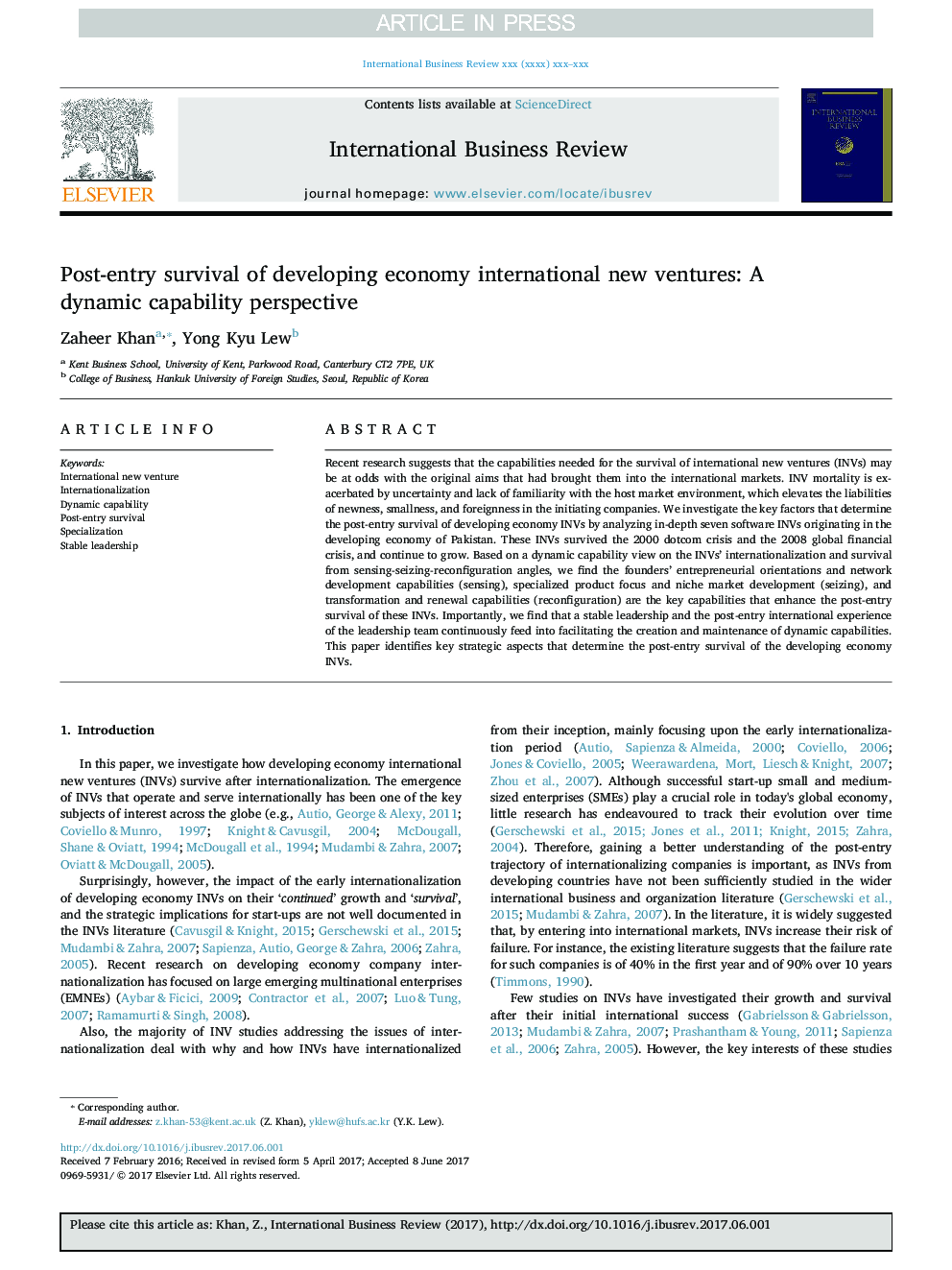| Article ID | Journal | Published Year | Pages | File Type |
|---|---|---|---|---|
| 7412731 | International Business Review | 2018 | 12 Pages |
Abstract
Recent research suggests that the capabilities needed for the survival of international new ventures (INVs) may be at odds with the original aims that had brought them into the international markets. INV mortality is exacerbated by uncertainty and lack of familiarity with the host market environment, which elevates the liabilities of newness, smallness, and foreignness in the initiating companies. We investigate the key factors that determine the post-entry survival of developing economy INVs by analyzing in-depth seven software INVs originating in the developing economy of Pakistan. These INVs survived the 2000 dotcom crisis and the 2008 global financial crisis, and continue to grow. Based on a dynamic capability view on the INVs' internationalization and survival from sensing-seizing-reconfiguration angles, we find the founders' entrepreneurial orientations and network development capabilities (sensing), specialized product focus and niche market development (seizing), and transformation and renewal capabilities (reconfiguration) are the key capabilities that enhance the post-entry survival of these INVs. Importantly, we find that a stable leadership and the post-entry international experience of the leadership team continuously feed into facilitating the creation and maintenance of dynamic capabilities. This paper identifies key strategic aspects that determine the post-entry survival of the developing economy INVs.
Related Topics
Social Sciences and Humanities
Business, Management and Accounting
Business and International Management
Authors
Zaheer Khan, Yong Kyu Lew,
